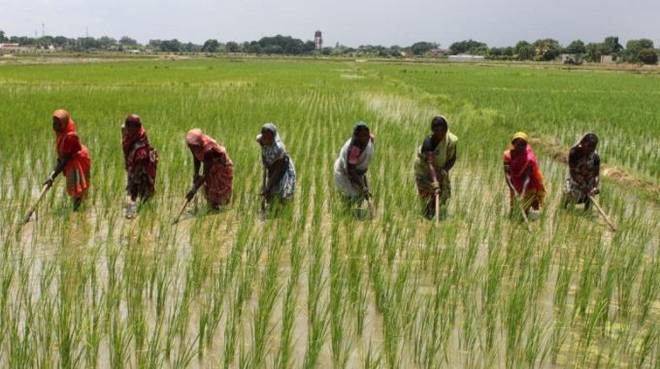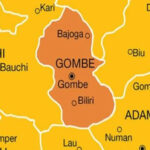Rice farmers in Gombe State are complaining over hike in the price of fertiliser and other agricultural inputs for the wet season farming.
Some of the farmers expressed fear that the situation would impact greatly on the price of the produce at the end of the farming season, when harvested rice is taken to the markets.
- Rice farmers begin sale of paddy to Kano millers
- Edo 2020: Rice farmers credit Obase’s govt for increase in production
According to Alhaji Musa Arab, the high cost of fertiliser and other inputs was frustrating and discouraging him and other rice farmers from farming this year.
He said as an experienced rice farmer, he had already foreseen food crisis because though farmers were ready to farm, the inputs, especially fertiliser and pesticides were not readily available to them
“We have planted rice but there is no fertiliser to apply because of the high cost and we can’t cultivate rice without fertiliser. For instance, I need at least 30 bags of fertiliser to apply on my rice farm which will cost me over N500,000, because a bag is sold for nearly N20,000 at markets.
“I cannot afford such huge money to spend on the farm, because I am not sure of how much I would get after harvest. The cost of farming now is very high, in fact this is the highest in my several years of farming and it will certainly affect the price of the rice,” he lamented.
Arab added that the state government had not given the right assistance to the rice farmers to encourage them to produce more to avert the impending food crisis in the state.
He claimed that they only heard over the radio that the state government had launched the sales of subsidised fertilisers, adding that the real farmers have not benefitted.
Another rice farmer from Awak village of Kaltungo LGA, Sanusi Tela, said it had become difficult for rice farmers in their area to engage into the trade this season.
“I lost 148 bags of rice paddy two years ago because of disease. I am yet to recover from that loss and usually what we get from the harvest is what we plough back into the farming.
“This year, I don’t have enough to plant and there is no assistance from the government. Therefore, the high cost of fertiliser and other inputs has made farming extremely difficult for us,” he lamented.
Tela added that due to uncertainty in getting good returns if he was to invest more, he only planted on a small piece of land from his vast farm.
Another farmer in the community, Malam Jauro Aliyu, said he had to leave rice farming for sesame which needed little or no fertiliser because of the high cost of inputs for rice farming.
Most of the farmers that spoke expressed similar concerns and warned of a looming shortage of rice paddy in the state for processing after harvest.
However, the state Commissioner of Agriculture and Animal Husbandry, Muhammad Magaji Gettado, said the state government had already launched the sale of fertilizer at subsidized rate to help farmers.
He said the ministry had made adequate arrangements for the fertiliser to reach the target population, adding that the ministry was working with the state fertilizer distribution committee to actively distribute and sell the fertiliser to the real farmers.
Gettado added that plans were underway for different agricultural programmes to help small, medium and large scale farmers, thereby providing employment and boosting the state’s internally generated revenue.
The commissioner also said the government had leased out the state-owned fertiliser Blending Plant to a private company, to start producing fertiliser locally by the next farming season.

 Join Daily Trust WhatsApp Community For Quick Access To News and Happenings Around You.
Join Daily Trust WhatsApp Community For Quick Access To News and Happenings Around You.


